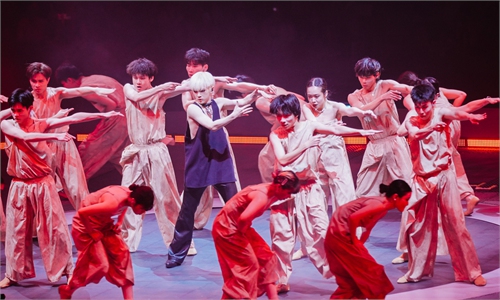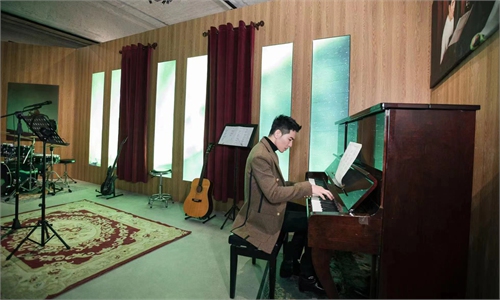ARTS / CULTURE & LEISURE
‘Singer 2024’ show a wakeup call for Chinese music industry

US singer Chante Moore performs at the stage. Photo: Screenshot from Mango TV
The debut lineup ranges from international singers like US singer Chanté Moore and Canadian Z-generation singer Faouzia to renowned Chinese artists such as Na Ying, Wang Sulong and Taiwan-born singer Rainie Yang, reflecting the endeavor by the production team to cater to the varied musical preferences of different demographics.
In the first episode, seven singers presented their signature pieces. However, from vocal skills to stage presence and flexibility, there was a noticeable gap in performance quality between domestic and international singers.
While seasoned Chanté Moore claimed the top spot with her rendition of "If I Ain't Got You," and young Faouzia mesmerized the audience with the song "Crazy," the performances of Chinese singers at the show, including the experienced Na Ying, fell short of expectations.
As a result, the only two foreign singers, Chanté Moore and Faouzia, took the top two spots, while Na ranked third. The subsequent rankings were also occupied by domestic singers.
In response to her ranking, Na humorously explained, "Setting aside the top two, I am in the first place, and I still have room for improvement. Nervousness is inevitable on stage because it's a live performance, and there's no chance for a do-over on this platform. This is very exciting."
The format of live broadcasting in the singing competition deserves applause. However, it also exposes the predicament in which the Chinese music industry finds itself. While the two foreign singers confidently commanded the stage and clinched the top two positions, domestic singers struggled with nerves during the performance.
Na admitted that after receiving the invitation to participate to the competition, she often experienced nightmares featuring "singing mishaps" and later she confessed to being "scared stiff" after the show. Yang also reflected on her nerves, acknowledging that they led to a significant disparity between her performance and her usual standards.
During a press conference for the show, the producer of the program Hong Xiao confirmed that many singers turned down the opportunity due to concerns over the "live format."
"Choosing live broadcasting has indeed narrowed our selection of artists. Many declined our invitations due to the live aspect, making it difficult for us to meet criteria such as talent, courage, and availability," he said.
On the night of its premiere, the show dominated the trending list on Weibo, a Chinese X-like platform. Speculations ran rampant among netizens regarding which skilled artists might step in to fill the gaps left by the eliminated singers. Some even began speculating about the future of the Chinese music industry, questioning who could potentially rescue its current state.
While "Singer 2024" has successfully leveraged its initial lineup to fuel discussions, the show's producers may need to carefully consider subsequent guest lineups to secure audience approval.
Despite the mixed reviews of Chinese performers in the show's first episode, their courage to step into the spotlight without the safety net of post-production editing is commendable. In an entertainment landscape dominated by artificial enhancements like editing, the authenticity of live vocal performances is a refreshing change for audiences.
"Singer 2024" has served as a wakeup call for both Chinese artists and audiences, exposing the disparities between the Chinese and international music scenes. To reverse the current decline in the Chinese music industry, a return to the fundamentals of music-making and a focus on genuine vocal talent is imperative.



